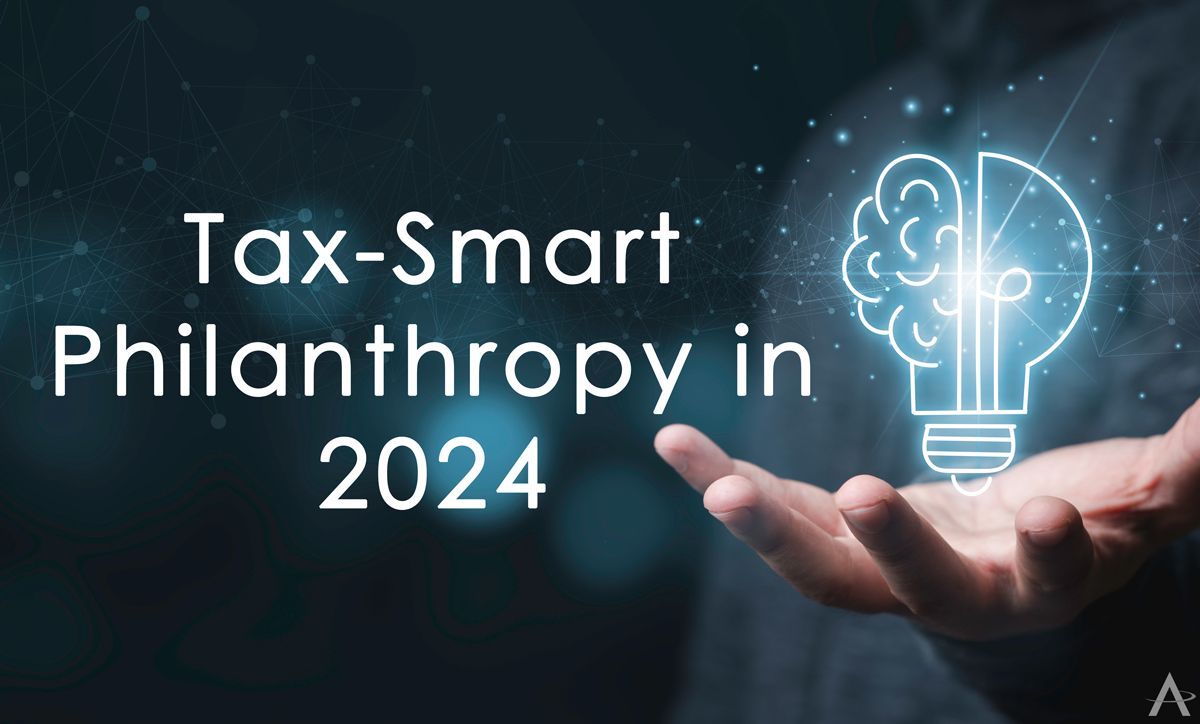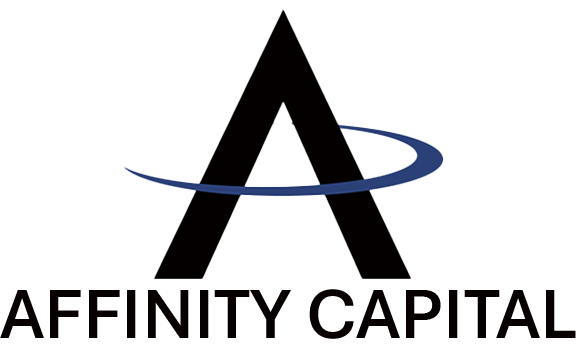Tax-Smart Philanthropy in 2024: Optimizing Your Giving While Minimizing Taxes

As your investment advisors, we understand your desire to support worthy causes while making the most of your financial resources. Fortunately, tax-smart philanthropy allows you to achieve both goals. Let’s explore strategies for maximizing your charitable impact in 2024, considering the latest tax regulations and outlining common giving scenarios.
Understanding Charitable Deduction Limits
The Internal Revenue Service (IRS) sets limitations on the amount of charitable contributions you can deduct from your taxable income. These limits are based on your filing status and the type of donation:
- Cash Donations: The maximum deduction for cash contributions is 60% of your Adjusted Gross Income (AGI) in 2024.
- Appreciated Non-Cash Assets: Donating appreciated non-cash assets held for more than a year, such as stocks or real estate, allows you to avoid capital gains tax on the appreciation while potentially claiming a charitable deduction for the asset's full fair market value. The deduction limit for non-cash assets is 30% of AGI.
Strategies for Tax-Smart Giving:
Here are several effective strategies to consider:
- Donating Appreciated Assets: As mentioned earlier, donating appreciated assets held for more than a year allows you to bypass capital gains taxes while potentially receiving a full deduction. This strategy is particularly beneficial for assets with significant appreciation.
- Bunching Donations: If your charitable contributions typically fall below the deduction limit, consider "bunching" them. This involves grouping multiple years' worth of donations into a single tax year. This strategy is best suited for those who itemize deductions and have fluctuating income levels.
- Qualified Charitable Distributions (QCDs): Individuals aged 70 ½ or older with traditional IRAs can make tax-free Qualified Charitable Distributions (QCDs) of up to $105,000 in 2024 directly to qualified public charities. This strategy can be particularly helpful in reducing required minimum distributions (RMDs) and lowering taxable income.
- Charitable Remainder Trusts (CRTs): A Charitable Remainder Trust (CRT) allows you to receive income from a trust for a set period or for your lifetime, with the remaining assets going to a designated charity. This strategy can generate income while providing a future tax benefit for your beneficiaries.
Common Strategies with Tax Benefits:
- The Retiree with Appreciated Stock: John, a retired investor with a significant amount of appreciated stock, wants to donate to his alma mater. Donating the appreciated stock directly allows him to avoid capital gains tax and potentially claim a full charitable deduction for the stock's value.
- The High-Earner with Fluctuating Income: A high-earning professional with fluctuating income may donate to various charities throughout the year. In years with lower income, the contributions may not reach the deduction limit. By "bunching" donations every other year, they may maximize her charitable deductions.
- The IRA Owner Facing RMDs: A retiree with a traditional IRA facing RMDs, wants to make a significant charitable contribution. He can utilize a QCD to donate directly from his IRA to a qualified charity, reducing his taxable income and satisfying a portion of his RMD.
- The Couple Leaving a Legacy: Clients nearing retirement want to ensure a portion of their estate goes to charity. They can establish a CRT, receiving income from the trust during their retirement years. Upon their passing, the remaining assets will be distributed to their chosen charity, reducing their taxable estate.
Maximizing Your Philanthropic Impact
Beyond tax benefits, consider these additional tips for maximizing your impact:
- Research Charities: Choose charities whose missions align with your values and ensure they operate efficiently.
- Consider Non-Monetary Donations: Donating skills, time, or resources can be just as valuable as financial contributions.
- Plan for the Future: Incorporate charitable giving into your long-term financial planning to ensure sustained support for your chosen causes.
Seeking Professional Guidance
As your registered investment advisor, we are dedicated to helping you achieve your financial goals, and that includes supporting the causes you cherish. While the strategies outlined here provide a framework, your philanthropic journey is unique. To ensure you maximize your charitable impact while optimizing your tax benefits, we highly recommend scheduling a personalized consultation. Together, we can tailor a tax-smart giving plan that aligns with your financial situation, philanthropic values, and long-term goals. Let's create a legacy of generosity while ensuring your financial security.
Please feel free to reach out for further discussion or clarification on these matters. Thank you for the opportunity to serve you and your family and to collaborate with you for—Wealth Management for Life!




